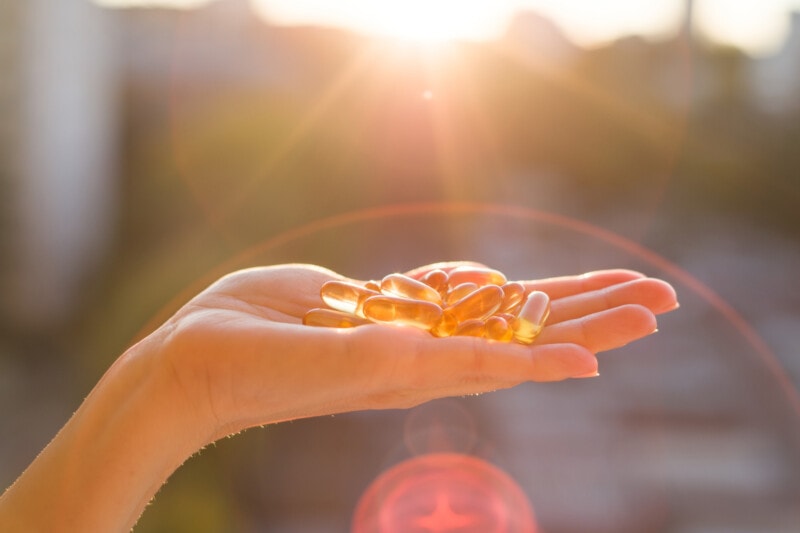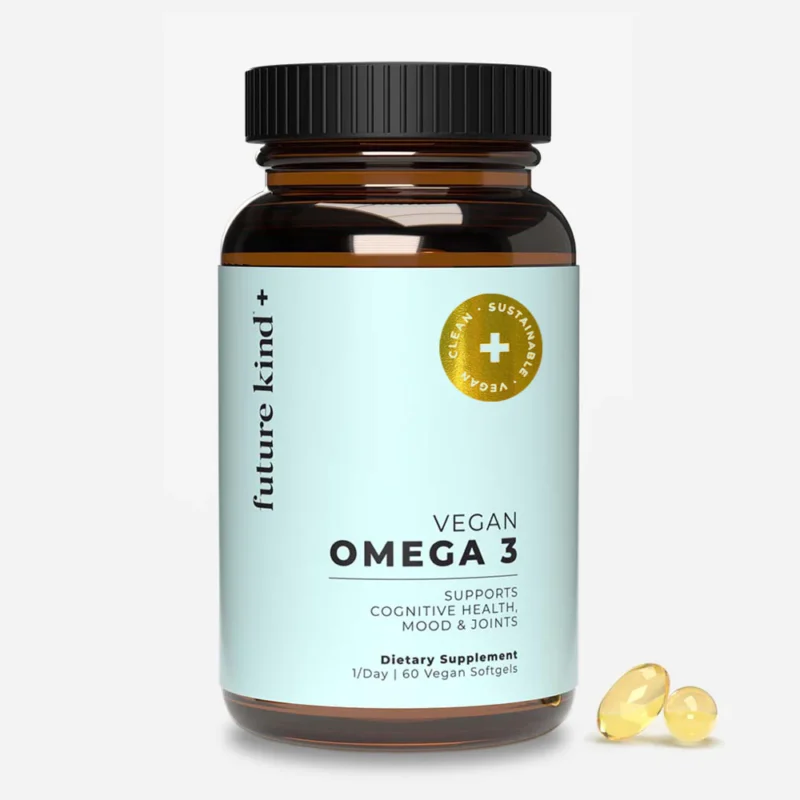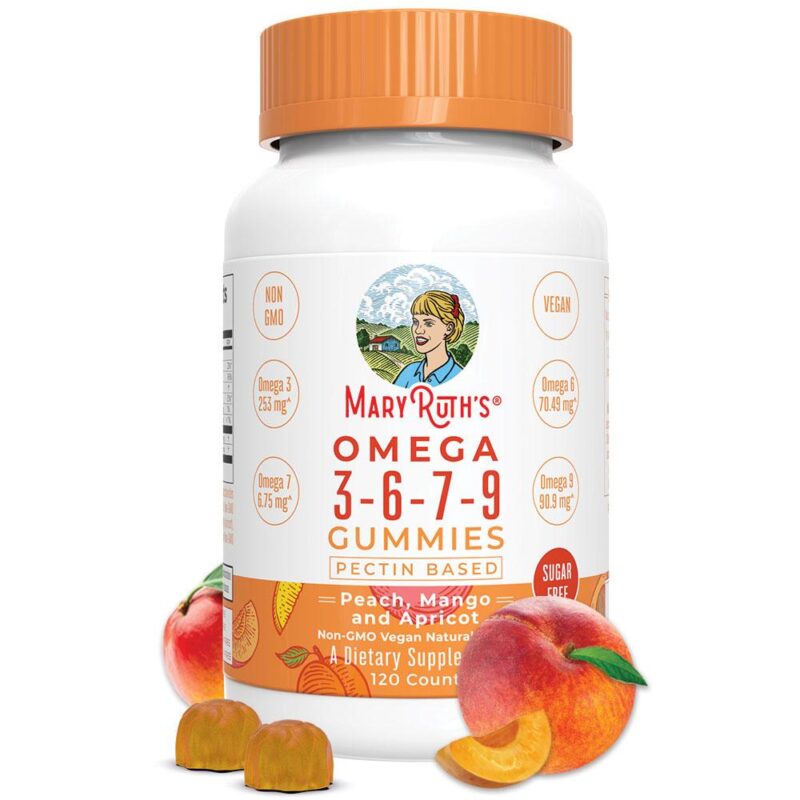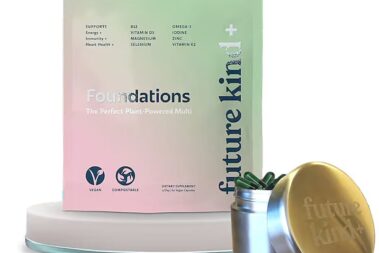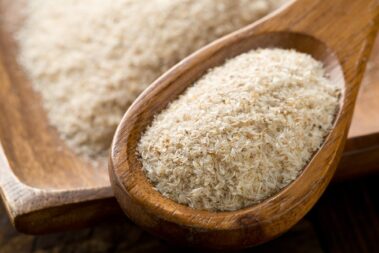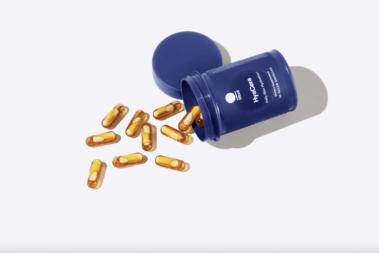Certain nutrients, like omega-3 fatty acids, may require a little extra attention on a plant-based diet. While you can find omega-3s in some foods, most are either animal-derived or not converted well in the body, so an omega-3 supplement may be your best bet.
Table of Contents
Best Vegan Omega-3 Supplements Quick Look
- Best Overall: Future Kind Vegan Omega 3 Supplement
- Calgee Sustainable Vegan Omega-3
- Ora Organics Head & Heart
- MaryRuth’s Organics Omega 3-6-7-9 Gummies
- iwi Algae Omega-3
- SR Vegan Omega-3
- Amandean Premium Vegan Omega-3 Supplement
- Nordic Naturals Algae Omega
- Sapling Vegan Omega 3 Supplement
- Deva Vegan Omega-3 DHA – EPA
What are Omega-3s?
Omega-3s are a type of polyunsaturated fat. There are three main types: Alpha-Linolenic acid (ALA), Docosahexaenoic acid (DHA), and Eicosapentaenoic acid (EPA).
Your body cannot produce them on its own, so omega-3s are considered essential to get from your diet, particularly ALA.
Omega-3s play several important roles in your body, including supporting the health of your brain, heart, blood vessels, and skin. In fact, around half of the dry weight of your brain is fat, which accumulates rapidly in the first two years of life. Getting enough omega-3s may also be associated with a lower risk for depressive disorders.
DHA is a main component of the retina in your eyes, the structure of your skin, and is vital for the functioning of your brain. EPA is especially important for helping your body manage inflammation.
ALA is a precursor to DHA and EPA, meaning that it’s converted by your body into the other two. It’s found in a wide number of plant foods. You can also find sources of EPA and DHA directly, though most are animal products.
Remember to always speak to your healthcare provider before starting an omega-3 supplement, or any new supplement, to make sure it’s safe and appropriate for you.
The Best Vegan Omega-3 Supplements
1. Future Kind Vegan Omega 3 Supplement
This 500 mg algal oil capsule contains both omega 3 + 6, which provides 225 mg DHA + EPA per daily 1-capsule serving. It claims to be sustainably sourced, pollutant free, and free from microplastics and mercury, which may be of concern with fish oil. They’re also orange-scented to improve palatability, and a portion of each purchase is donated to rescue mistreated farm animals.
2. Calgee Sustainable Vegan Omega-3
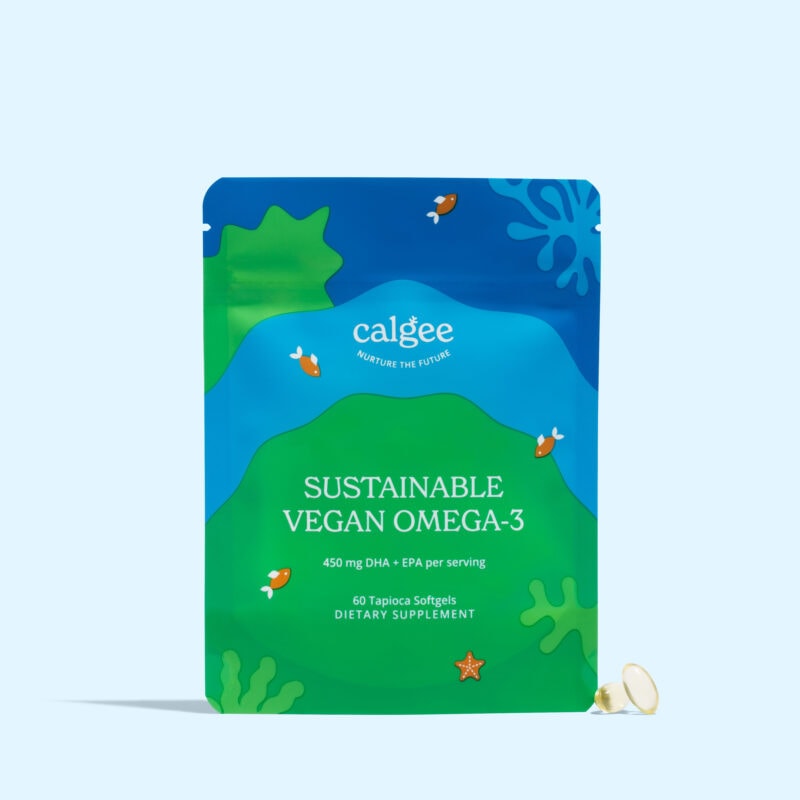
Each 2-softgel serving of this algae product contains 450 mg of DHA + EPA. It’s free from carrageenan and the gels are made using tapioca starch instead of modified corn starch, which some people may want to avoid. The product also claims to contain 85% more EPA and DHA per serving than fish oil, giving you a more concentrated dose. The product is third-party lab tested to ensure quality and safety, and the company donates 1% of their sales to 1% for the Planet.
They ditched the fossil fuel based plastic bottle and switched to more sustainable pouches. These lighter pouches are easily resealable and will keep your softgels fresh, while lowering your carbon footprint.
Their Sustainable Vegan Omega-3 carbon negative pouch is made from plant-based plastic. These come from renewable resources such as sugarcane.
3. Ora Organics Head & Heart
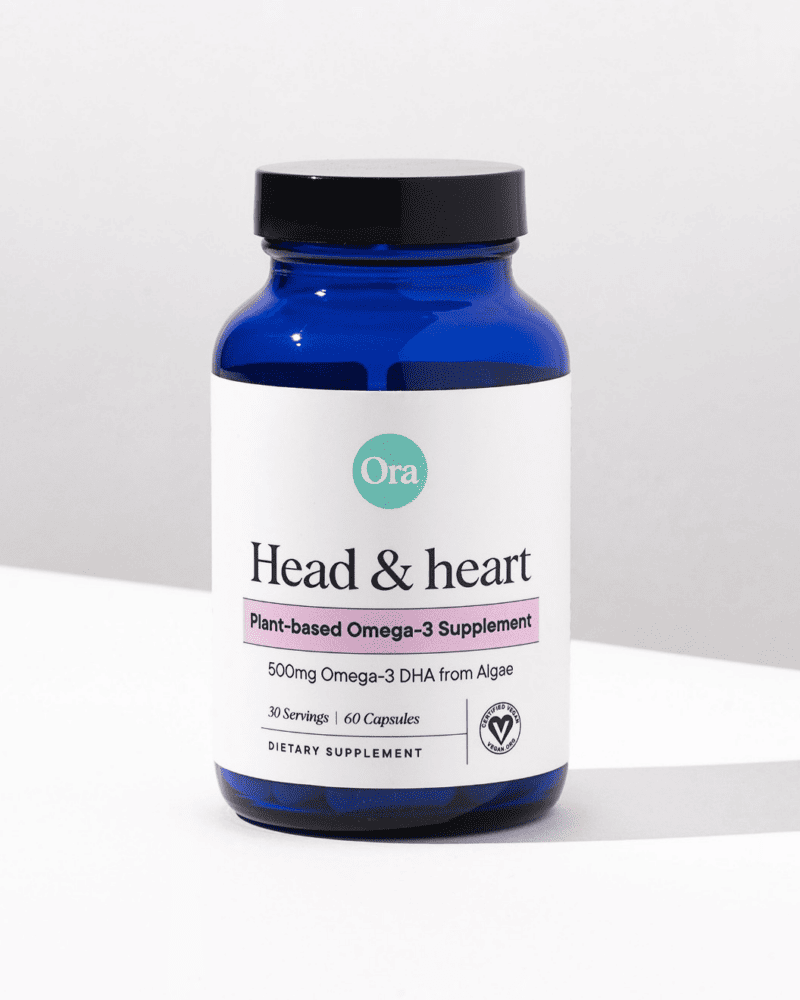
Ora wanted the purest, most bioavailable source of DHA omega-3s, so they went straight to the source: Schizochytrium algae (pronounced skitz-uh-kie’-tree-um). Their algae is cultivated sustainably in an enclosed system to ensure minimal impact on the marine ecosystem.
Head & Heart has no fillers, no carrageenan, nor artificial ingredients — Their omega-3 is as pure as it gets.
Unlike traditional fish oils, Ora’s plant-based omega-3 is sourced from sustainably harvested algae from the North Atlantic Ocean. They also third-party test every batch for heavy metals and contaminants.
Take 2 capsules daily at any time. Unlike most fish oil supplements, you don’t need to take our omega-3 with food — it’s bioavailable any time of day! Don’t worry about finding the “perfect” time of day. Simply choose a time that works for you and aim to keep it consistent.
Capsule-swallowing trick: Put 1 or 2 capsules in your mouth, drink some water, and then tilt your head forward before swallowing. The air in the capsules will help them float to the back of your throat and should make the capsules easier to swallow.
4. MaryRuth’s Organics Omega 3-6-7-9 Gummies
These algal oil gummies are made using pectin instead of gelatin, ensuring that they’re vegan. This is a nice option for anyone who doesn’t want to swallow a capsule. However, note that these gummies don’t contain as many total omega-3s as many of the other options, and they only provide ALA, not DHA or EPA directly. Thus, these may be best suited for individuals who get other sources of DHA and EPA in their diet.
In 1 gummy, you get 54.5 mg of ALA, as well as some omega-6, 7, and 9. The omega fats in these gummies appear to be sourced primarily from flax seed and sea buckthorn berry.
5. iwi Algae Omega-3
This supplement contains a proprietary form of algae called Almega®PL, which was shown in a 2020 randomized controlled trial to significantly increase Omega-3 Index and EPA concentration compared to placebo, when taken among 120 participants in a dose of 1 gram per day for 12 weeks. In 1 softgel, you’ll receive 230 mg of omega-3 fatty acids.
6. SR Vegan Omega-3
In a 2-softgel dose of this product, there are 770 mg of total omega-3s, including 420 mg DHA and 210 mg EPA. They’re made with algal oil encapsulated in a plant-based gel cap. The brand is also very clear that this product is free from carrageenan, a thickening agent derived from red seaweed that some people prefer to avoid due to concern that it may promote inflammation and have adverse effects on digestive health (though robust evidence is lacking).
7. Amandean Premium Vegan Omega-3 Supplement
This product offers 550 mg of total omega-3 fats in a 2-capsule serving, including 300 mg DHA and 150 mg EPA. It claims to be sustainability sourced, using non-GMO algae grown in a tightly controlled environment in the US.
8. Nordic Naturals Algae Omega
This algal oil is non-GMO verified and third-party tested for purity, so you can feel more confident knowing that it contains what it says it does. You’ll find 715 mg total omega-3s in a 2-softgel serving size, which includes 390 mg DHA and 195 mg EPA. Note that they do contain modified corn starch and carrageenan.
9. Sapling Vegan Omega 3 Supplement
In each 2-softgel serving, you’ll get 550 mg total omega-3s, including 300 mg DHA and 150 mg EPA. Note that these also contain modified corn starch and carrageenan, in case you’re looking to avoid these ingredients. They’re subtly flavored with peppermint to help mask any “ocean” scent or taste.
10. Deva Vegan Omega-3 DHA – EPA
Each of these microalgae oil capsules provide 500 mg of total EPA and DHA. They’re also free from carrageenan. Note that in the product reviews, there are many comments about how large this capsule is, which may make it more difficult for some people to swallow.
What to Look For When Choosing an Omega-3 Supplement
When choosing an omega-3 supplement, there are a few things to keep in mind.
Most omega-3 supplements on the market are fish or krill oil. However, if you’re looking for a fish-oil fatty acid alternative that’s vegan, there are a growing number that are made from algae or yeast instead.
After all, algae is the original source of these fatty acids. Fish eat algae and plankton in the ocean, which allows them to accumulate omega-3s in their bodies.
As for dosing, a good benchmark to aim for is a supplement that provides you at least 250 mg of DHA + EPA per day. Look at the back of the supplement facts panel, where it will should tell you the total amount of omega-3s, as well as how much is coming from EPA and DHA per serving.
Lastly, look for supplements that bear an official third-party testing seal from places like NSF International, USP, or ConsumerLab, if possible. This indicates the product has been verified to contain what it claims, and has been otherwise evaluated for safety and quality.
Omega-3 Deficiency
Developing an omega-3 deficiency can start with symptoms like irritated skin or dry eyes. You may also notice feeling more depressed, experience somewhat of a brain “fog,” or find that your joints are painful.
Checking for omega-3 deficiency is not a routine lab test, so if you’re concerned that you may be low in this nutrient, you should explicitly request a test.
However, the best way to make sure you don’t become deficient is to get a wide variety of omega-3 fats in your diet, either through food or supplementation. You may also notice that eating more of this nutrient helps improve symptoms.
Omega-3s on a Plant-Based Diet
The best sources of omega-3 fats are certain animal products, particularly fatty fish and eggs. This can make it difficult to find them in adequate amounts on a plant-based diet.
Ground flaxseed, chia seed, hemp seeds, and walnuts contain ALA. However, the conversion rate is very low in the body, ranging from less than 5-10% for EPA and only 2-5% for DHA. In other words, eating sources of ALA is unlikely to meet your overall omega-3 needs on a totally plant-based diet.
If you follow a plant-based diet and don’t consume seafood or eggs, it would be prudent to take an omega-3 supplement. This is especially recommended for pregnant women, as DHA is crucial for a developing baby’s brain and eyes.
Omega-3 FAQ
People who eat strictly plant-based diets may be more likely to have lower omega-3 levels than those who eat an omnivorous diets. However, according to a report from the European Prospective Investigation into Cancer and Nutrition (EPIC) Study, vegan women had significantly more omega-3 fats present in their bloodstream than fish-eaters, meat-eaters, and vegetarians who ate eggs and dairy, despite no intake of EPA and DHA.
Yes, omega-3s are found in plant foods, but only in the form of ALA. This omega-3 is then converted, albeit in small amounts, to EPA and DHA in your body. Some examples include chia, hemp, and flax seeds, as well as walnuts and green leafy vegetables.
Vegan omega-3 is just as good as fish oil, and even better in certain ways. After all, fish obtain their omega-3 by eating algae in the ocean, and vegan omega-3 supplements are made from algae itself. In this sense, vegan omega-3 supplements are cutting out the middle-man.
The best way to get omega-3 naturally is through food and supplements when needed. Your body doesn’t produce omega-3s, which means they must be consumed from external sources.
Yes, while the majority of omega-3 supplements on the market have been made using seafood like fish or krill, there are some vegan options. Plant-based omega-3 supplements are made from algae or yeast.
The best plant-based sources of omega-3s are nuts and seeds. Specifically, flax, chia, and hemp seeds, as well as walnuts, are all good sources of ALA, the precursor to EPA and DHA. You may also find that some plant milks have been fortified to contain DHA. Still, this is usually not enough to meet recommended omega-3 needs in your diet, especially because the conversion rate of ALA to EPA and DHA is very low.
It’s likely fine to take your daily omega-3 dose at one time. However, the best approach is to follow the directions on the individual supplement. You should also never take more than the recommended dose for any supplement.
It’s a good idea to take an omega-3 supplement if you follow a totally plant-based diet, with no consumption of seafood or eggs, to make sure you get enough of this essential nutrient.
Vegan & Vegetarian Food Sources of Omega-3
While an omega-3 supplement is a good idea for anyone who follows a plant-based diet, it’s still recommended to regularly consume plant sources of ALA as well.
Some of the best ones include:
- Flax seeds: Studies have found that omega-3s and other nutrients are more bioavailable in ground flax seeds than whole. You can purchase these pre-ground or grind them yourself before eating. Sprinkle ground flax seeds into cereal, blend in smoothies, or use it to make homemade vegan “eggs” for baking things like muffins and cakes (1 egg = 1 tablespoon of ground flax + 2 tablespoons of water). Try these flax crackers for a great snack option.
- Chia seeds: Chia seeds may also be a better source of omega-3s when ground. You can also find these in whole or ground form at most grocery stores. Some stores even sell a blend of ground chia and flax seeds together. Add chia seeds to salad, smoothies, yogurt bowls, or even in a sweet blueberry jam.
- Hemp seeds: Hemp seeds contain around 30% oil, much of which are omega-3s. One ounce of hemp seeds contains around 6,000 mg of ALA. Use hemp seeds like other seeds, in breakfast bowls, on salads, in smoothies, or as a coating for making roasted avocado slices.
- Walnuts: Walnuts are around two-thirds fat by weight. A one ounce serving of walnuts contains over 2,500 mg of omega-3s. You can eat walnuts on their own or add them to things like oatmeal, baked goods, plant-based taco meat, and homemade trail mix.
- Brussels sprouts: Though not quite as rich in omega-3s as the nuts and seeds above, some cruciferous and green veggies do contain a little bit. For instance, a one-half cup serving of raw Brussels sprouts contains around 44 mg of ALA. Cook them, and their ALA content nearly triples. Add omega-3s to the long list of reasons why we should all be eating more green veggies.
If you’re after more vegan living tips, be sure to sign up for our newsletter.
The Best Omega-3 Supplement for Vegans
While there are a lot of great vegan omega-3 fatty acid supplements on the market, our favorite is definitely Future Kind’s Vegan Omega 3. This quality supplement is free from impurities, sustainably sourced, and contains both omega-3 and omega-6 for optimal health.
Of course, if you’re after something a little different, there are plenty of other great options on our list above.
What is your favorite omega-3 supplement? Let us know by posting a comment below!
- 11 Best Vegan B12 Supplements for 2023 - June 16, 2023
- 6 Best Vegan Kids Vitamins of 2024 - May 23, 2023
- 5 Best Vegan Digestive Enzyme Supplements for 2023 - May 25, 2022

